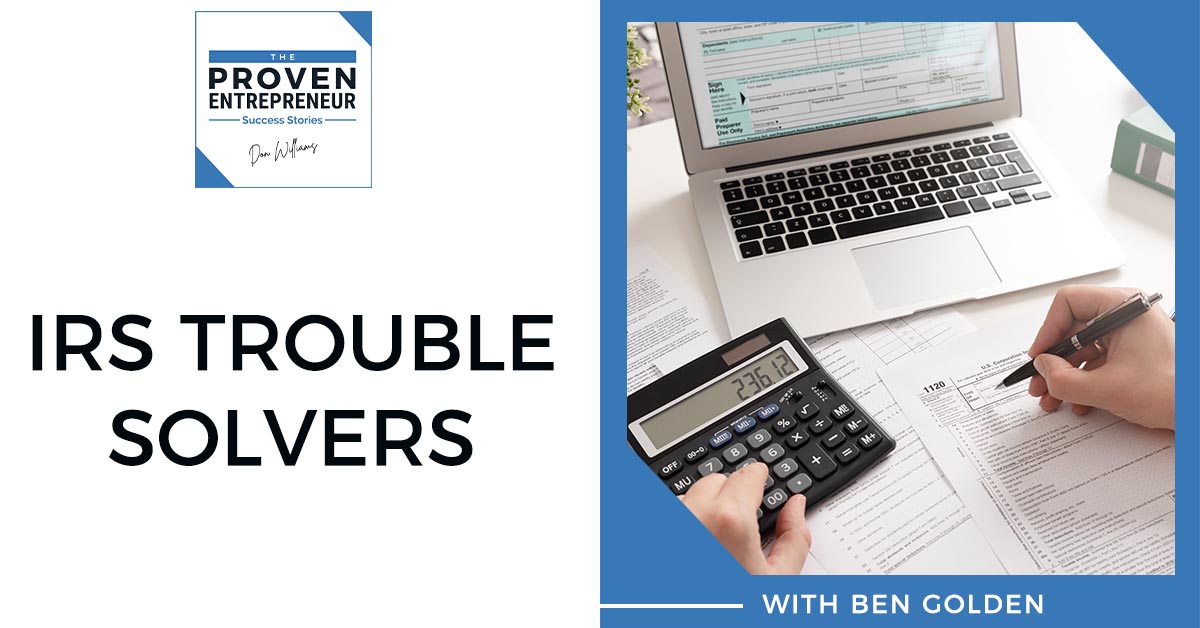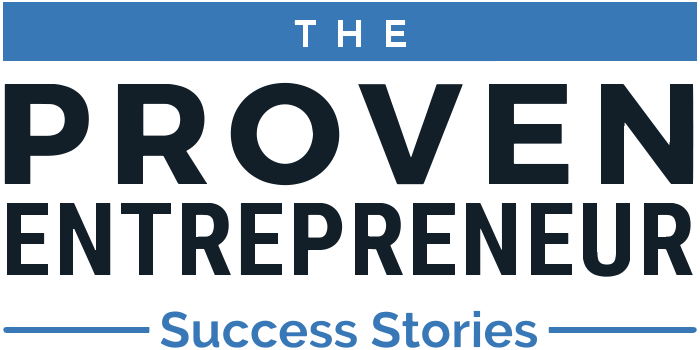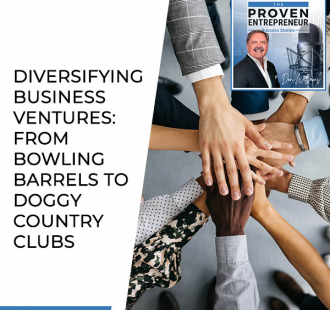
You need to know when to shift your mindset and create a place for success. Join your host Don Williams as he talks with the CEO of IRS Trouble Solvers, Ben Golden. Ben specializes in tax resolution because of his own past experiences with the IRS. In this episode, he shares detailed information on taxes and accounting, especially the importance of getting an expert to help you. You must not assume that you will not encounter problems along the way because there are people that can help you deal with those. He also discusses entrepreneurship, moving forward, and acting with grace and forgiveness.
For information on how to work with Don visit Work With Don Williams
You can also reach out to Don Williams at https://donwilliamsglobal.com
Please join Don and his businesses in support of St. Jude’s Children Research Hospital in its Mission to cure Childhood Cancers. You can donate to St. Jude at stjude.org/donate
—
Watch the episode here
Listen to the podcast here
Ben Golden – IRS Trouble Solvers
The Golden Touch
I have a great guest. He is the owner of a great company that many entrepreneurs will need help from or a similar company at some point in their life. We welcome Ben Golden with IRS Trouble Solvers. Welcome to the show.
Thank you for having me. I appreciate it.
I’m grateful to have you. Death and taxes are two inescapable facts of life. One thing with taxes may be trouble at some point. If you are in business long enough and do enough business, probably one day, you are in some degree of trouble, and a trouble solver is a good thing to have. We’ll talk more about that. Ben, how long have you been in business at IRS Trouble Solvers?
I’ve been doing taxes and accounting for several plus years. I opened this company several years ago. Our specific goal is to help people that have problems with the IRS that they cannot deal with themselves.
I’m a 36-year entrepreneur now in 2022. I founded a dozen companies, a principal in five companies. I’ve done a lot of tax activity between the federal government and me. I’m a big believer that unless it’s minor, you should get an expert to help you, somebody who knows what’s going on.
That’s one of the problems that a lot of people find themselves in, and I’ve seen it many times. Somebody thinks that they don’t have a difficult tax return. They go and use some software that can get off the internet to prepare their tax return. I had one gentleman that I helped, and I couldn’t help him a whole lot because when I looked at his return, he put the same automobile in for the same number of mileage four times using one of this do-it-yourself software.
I was like, “It’s wrong. Let’s get it into and try.” When we defend people in audits, we want the correct tax to be paid and the least amount of penalties that they can pay depending on the issues, but sometimes you do owe it. We get them into a payment plan or figure out what we have to do there, but sometimes, it can be a challenge.
Do not procrastinate. Do not let fear paralyze you and throw the envelope into the desk drawer, and hope it goes away because it will never go away on its own. Click To TweetA word of the wise to our readers is this, “Don’t ignore problems. They get worse.”
I’m a big statistics person. As an accountant, you probably didn’t figure that out. 93% of all audits that the IRS has haven’t changed. Of those 93%, 67% are because the people do not answer the mail from the IRS. They don’t even open it up. They see that it’s from the IRS, they see that it’s from the state, and fear strikes them all over. They become paralyzed. They cannot get that letter opener into that envelope. You are 100% right. Do not procrastinate. Do not let fear paralyze you and throw the envelope into the desk drawer, and hope it goes away because it will never go away on its own.
During the pandemic, the IRS with the PPP, ERC, and all these programs, temporary moving of deadlines, and temporary stuff. With our own business interest, we got some penalties, and some of them were specific to taxes returns. Our tax pros were like, “Go ahead and pay them. We’ll work it out later. If it doesn’t work, do not pay them.” Several weeks later, the IRS refunded it all. It’s like, “This is crazy.”
If you’re a new entrepreneur, all of that sounds a little nonsensical, but that’s the way it is. Get somebody to help you. Let’s hop back out of the present, and let’s go to the past. We’re taking you all the way back to young Ben, 5 to 18 years old. The first question I want to ask you is this. During that timeframe, in the households that you were raised in, was an adult in your childhood an entrepreneur?
Yes.
Who was?

My father.
Will you tell us a little bit about what type of entrepreneur he was?
In 1980, he started his own railroad construction business, and I grew up around it. When I turned eighteen, I went into the paper mills and worked with the railroad on industrial lines. I got to learn and understand everything about the railroad. I grew up on a farm as well. A lot of the people that I went to school with college had never seen hard manual labor. I was a pick-and-shovel man. Dad grew it from $140 in his pocket and a dream to a massive multimillion-dollar company. I’m quite blessed quite well.
There are no little companies. I live outside of Fort Worth, Texas. We have a little railroad company here by the name of Burlington Northern, but it’s for 50% of all rail freight or something. That guy in Nebraska has a Berkshire Hathaway company. Growing up in rural Kansas, I had a friend who worked for his father. He worked, at that time, on The Frisco Railroad, which is probably part of Burlington Northern.
You come by entrepreneurship. What I’ve found in doing the show is only about half the people had an entrepreneurial example. The other half were wired to where they weren’t going to be able to be a W-2 person all their life. Let’s stay with young Ben. What was your first job? It might have been your first company. What was the first thing you did where you earned compensation and how old were you?
I was eight years old, and my dad paid me $0.25 an hour to work on the farm.
The smart thing is to be able to realize when you need to shift quickly. Click To TweetI drove a John Deere tractor but behind the combines at wheat harvest, which is a filthy, nasty, dirty job because you’re in the field. There’s still dust, chap, and all of that. It’s like 100-plus degrees in Kansas in June, but I tell people that. They’re like, “How old were you?” I was like, “When I couldn’t do this now probably, but it was my grandparents. It was their farm, and I was eleven.” Maybe the more telling fact was this, I drove the pickup from the house to the farm to get on the tractor. That was nine miles.
I was in charge of a 72-horse tractor. Dad put it in granny gear and said, “Don’t change the gears.” I was bush-hogging the pasture. What’s the worst that could happen? I’d run off in a ditch or something like that. What I did was built fences, be a helper, and run the tractor. I didn’t know anything else. I thought that’s the way all kids grew up. I didn’t know.
On the first day, going into the first field from the lot, I clipped the gate post with the desk and pulled down what seemed like 100, but it was probably 10 or 15. On my first day, I spent resetting fence posts and restringing barb wire. The positive in all of that is that both of us learned what hard work is. That will take you a long way in entrepreneurship. Get in there and work hard. After young Ben in your folks’ house, you graduated high school. You backpacked across Africa where you joined the Marines, or you went to college, what’s your story? What did you do next?
When I was young, I always wanted to be an accountant. I don’t know why. I told my dad when I was ten, “I’m going to college. Save some money.” I enjoy the financial side of the world. I went to the University of Alabama and graduated with an Accounting degree. My wife and I got married. She was in the Air Force. She was stationed at Travis Air Force Base in Fairfield, California, which is outside of San Francisco.
It is nowhere near the University of Alabama.
It’s a little far away. That gave me the opportunity to get my Master’s degree in Taxation. After that, I was able to start running down the road of taxes. I found out that in the accounting world, taxes are where I gravitated towards and enjoyed.

I don’t understand it, but I love that. I say that because I come from the Top Salesman in the Country at 19 and Top Sales Manager at 20. When I opened my first company, it came time for my first corporate return, I could not spell P&L, and there were only two letters. I was woefully uneducated. Education can be had. It’s just expensive when you pay for it. Is your first entrepreneurial company an accounting firm, tax practice, IRS Problem Solvers? Sometimes, I talk with people. I’ve done a dozen companies and I’m a principal of five. I meet that rare gem who is like, “I started one, and that’s where I’m at.”
I started one, and that’s not the same one where I’m at. In my first accounting company, I got approval from the large regional firm that I was working with to do individual tax returns. We’re on the side, as long as they weren’t in the same ballpark as what we did. I called my first accounting company Midas Touch Accounting. My last name is Golden. In all of my companies, I’ve always had pretty much some play on words with my last name. That was my first one. I did individual income tax returns for friends, family, and people that needed them. It moonlighted, and that’s how I started.
Looking back across your career, I’m looking for a hard lesson, something that happened that at the time it happened, like, “That hurts. It’s painful. I don’t like it. I wish it hadn’t happened.” Now in retrospect, it was a perfect thing to happen. It wasn’t fun that you were going through it. Do you have a hard lesson you can share?
A lot of entrepreneurs have certain risk tolerance. My risk tolerance has always been high. I always tell people, “I jump off the cliff doing a flying monkey. I’ve probably hit and scraped every part of my body against the cliff all the way down.” I decided, “I’m smart. I have an accounting firm. I have a tax degree. I’m a big man on campus type ideal mindset.” I said, “I’m going to invest in another company.” I learned from that lesson to stay in my lane. I used someone else’s expertise in order to help leverage my income. It was a poor decision because I was not the primary. I relied on someone else to get it done.
You know as well as I do. Sometimes other people don’t have the drive that you have. They don’t have the ambition you have. They don’t have the desire for high-quality or whatever it may be but it taught me a great lesson to stay in my lane. I decided to pay that debt back instead of making my house payment and lost my house.
My wife and I talked about the whole thing. We both were in agreement about what I had to do. She stuck with me through the whole thing. It’s hard to do when you’re living in a big, nice house and you got a 4 and a 6-year-old. Everything’s going great, you make one decision, and there goes your house. We moved from a 4,000-square-foot home into a 900-square-foot apartment.
Always move forward. Always go to a place of grace and forgiveness. Click To TweetThe title of the show is Proven Entrepreneur Success Stories. Counter-intuitively, all success stories have a failing or 2 or 17 somewhere along the way. The interesting thing is that sometimes, the height of future success is almost predetermined by the depth of a past failing. I see that often across 36 years of being an entrepreneur, getting to do these shows, and talking with a ton of people. There’s another lesson in there for the entrepreneur.
There’s a defunct construction company out there with a bunch of my money. It’s a hole in the ground somewhere, but it’s an entrepreneurial commonality to think that I’m good at this. I’m going to be good at that, too. That’s not always the case. It is for some people, but for many, it’s not. If you’re a five-handicap golfer, it doesn’t mean you’re going to play hockey well.
You might, but you might not. Thanks for sharing that. What about a work speed moment? Things are going pretty well. You add the right hire, you implement a new strategy, or an external market event happens that all of a sudden, your growth is through the moon. Do you get one of those you can share?
Our accounting firm was in the panhandle, and 2010 hits. The BP oil spill. It greatly affected a lot of the businesses in our area because of the scare of oil. It is going to be washing up on the beaches and the beaches will never be the same. There goes the white, beautiful sand, and all the worries that everybody had. 2010 to 2011 was a bad year for a lot of industry, lots of tourism, and different types of companies during that period. The smart thing is to be able to realize when you need to shift quickly. We shifted into a mode to be able to help people during this time. We went from zero to hero in no time flat. Because of that, we were able to help quite a few people. Our bottom line was helped as well.
I’m looking for a nugget, some piece of wisdom in your brain that we want to know. It could be tactical, strategic, or experiential, but there’s something in there that you know that we want to know. We don’t know what it is to ask you.
I’m a big fan of operating out of grace and forgiveness. If I ever want grace and forgiveness in my business, it’s going to be a matter of time before you need it. It’s not, “If you’re going to need it, it’s going to be a matter of time when you’ll need it.” The same goes for my team. I want to operate out of a place where we’re all running at a breakneck speed arm-in-arm. When someone trips, the two people beside them can hold them up.

If we operate through grace and forgiveness, our first thought is, “How dare you? What can we learn? What did we learn? How can we do this better next time.” Our first thought is not, “I’m going to hit you over the head with a stick because you made a mistake.” That’s not the way that I like to operate. If I operate in a place of grace and forgiveness or where it’s not intentional, and we want to move forward, that’s what the step is.
The step is always to move forward. It’s not to move backward. How can I live with that person? How can I lift that client? How can I lift the situation into a place where we can help? In our industry, it’s all about adding value. I’ve got to add value to clients for them to be able to see my value. One of the things that I have to do is I have to add value through my outlook and the way that I approach every situation. My first step is always going to be a place of grace and forgiveness.
I’m convinced that transformative leaders and leadership have changed, evolved, and grown in the last several years. We’ve gone from the commander at the top, the 2nd, 3rd, and 4th level, all the way down to the troops toward now in transformative leadership. It’s inverted to where a great leader cast the vision, recruits the best people on the planet to execute the vision, and empowers those people to make that execution happen.
If there’s a mistake, because the people are all aligned from a value standpoint, it’s not my mistake or your mistake. It’s a mistake. Let’s fix the problem, not my problem or your problem. We learn and prevent it from happening again. The most progressive organizations view leadership from that point of view.
I’m going to put you in a time machine here like Star Trek or Star Wars. I get to take you all the way back. You’re probably at the University of Alabama at age twenty. You get to grab Ben by the collar and say, “I’m going to give you 2 or 3 things here that are going to make things easier, better, faster, and smarter for you.” What do you tell your twenty-year-old self?
Communication is two-fold. One person is talking, and one person will have to listen. If he’ll listen, I would say, “Continue to go with your gut. Trust your instincts. Lean on your wife and family more. It’s not all about you. It’s about the family. It’s about doing it together, as opposed to thinking that you’re all that, and you can do it all yourself. You can’t. It’s okay to trust other people to help you. Learning the value of delegation sooner would help.”
Learning the value of delegation sooner would help you. Click To TweetI used to think, “I’ll let them do it and it will get done the way that I wanted to.” It comes to me and I’ll be like, “I don’t like the way they do it.” I didn’t properly tell the person that did it that they did it not exactly the way I wanted. The next time, it would come back to me wrong again, and I’ll be like, “They don’t know what they’re doing.” Learning the value of delegation is something that I would talk to myself about.
I’m a big believer that as an entrepreneur, you should only invest your time and energy into activities that are in your zone of genius and that are different than your zone of excellence or confidence. Many times, entrepreneurs have a wide area of excellence. It’s safe to be there because you know everything about it, and you do it better than almost anybody on the planet.
The problem with your zone of excellence, as opposed to your zone of genius, is in your zone of genius, you can be magnificent. You can’t get there in your zone of excellence, but your zone of excellence is safer and more comfortable. The good stuff exists in your zone of genius. To do that, you’ve got to delegate. You can’t do it all. Ben, if one of our readers had IRS trouble and they wanted to reach out to you, what’s the easiest way to get in touch with you?
Go to our website. Find out a little bit more about us before you call. I encourage people to find out who they’re working with before they work with them. If it makes sense for us to work together, the best way to do that is on our website, www.IRSTroubleSolvers.com. We’re more than happy to help you. We have three locations, 1 in Seattle, 1 in Chicago, and our headquarters in Alabama.
That sounds like anywhere in the country. If you have IRS troubles and you need IRS trouble solvers, reach out to Ben Golden and his team. Ben, thank you so much. See you next time.
Important Links
About Ben Golden
 Do you OWE the IRS Money? I can help you resolve your IRS and State tax issues once an for all. I help give you peace, protection, and posterity (future). Don’t let them push you around. Did you know 1 in 50 people owe the IRS money? Over 14,000,000 people owe the IRS today! Let me help TODAY!!
Do you OWE the IRS Money? I can help you resolve your IRS and State tax issues once an for all. I help give you peace, protection, and posterity (future). Don’t let them push you around. Did you know 1 in 50 people owe the IRS money? Over 14,000,000 people owe the IRS today! Let me help TODAY!!
For information on how to work with Don visit Work With Don Williams
You can also reach out to Don Williams at https://donwilliamsglobal.com
Please join Don and his businesses in support of St. Jude’s Children Research Hospital in its Mission to cure Childhood Cancers. You can donate to St. Jude at stjude.org/donate





